
Energy efficiency plan: "Moving towards the best possible balance
Content type : Article
Published on: January 31, 2023
Energy-efficiency investments and renovation projects, adaptation of...

Rouages: "Managing the supply and set-up of equipment at events".
Content type : Article,
Video
Published on: January 30, 2023
Pascale Hugonnet-Susini is team leader for logistics and events within the...

Marie Morille: megastrategic nanoformulation
Content type: Portrait
Researcher at the Charles Gerhardt Institute (ICGM) and lecturer in the galenic pharmacy and biomaterials department at the University of Montpellier, Marie Morille conducts strategic research into the formulation of biotherapies. This has earned her the IUF prize in 2022, after being awarded an ANR junior prize in 2020.
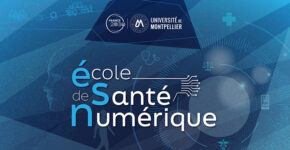
Launch of the "ESNbyUM" Digital Health School
Content type : Agenda
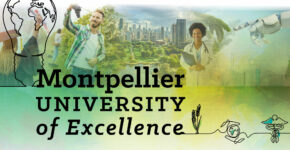
Booster Innovation Montpellier (B.I.M.) "Soigner" (Care)
Content type : Agenda

Booster Innovation Montpellier (B.I.M.) "Nourrir" (Feeding)
Content type : Agenda

23rd Water Seminar
Content type : Agenda
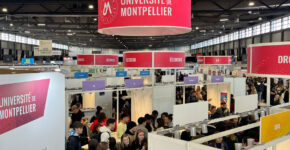
The UM meets its future students
Content type : Article
Published on: January 18, 2023
For its 33rd edition, the higher education fair took place at the Parc des...

"Energy transition: what citizens can do".
Content type : Agenda
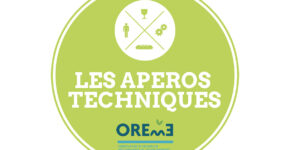
OSU OREME technical aperitif "Low-tech: concepts and implementation".
Content type : Agenda

The constitutional principle of secularism: a kaleidoscope of rules and values
Content type : Agenda
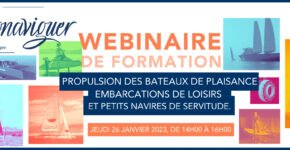
"The propulsion of pleasure boats, leisure craft and small service vessels".
Content type : Agenda
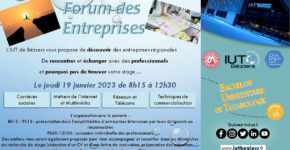
Company Forum
Content type : Agenda

Exposum
Content type : Page
The ExposUM Institute is an initiative by the University of Montpellier and its partners to establish an out-of-building, decompartmentalized benchmark institute for the study, training and science-society interaction of the environmental determinants of human health. Winner of the ExcellenceS call for projects (PIA4) and supported by the Occitanie Region, ExposUM is funded to the tune of 46.4 M€ over the period 2022-2030. The exposome corresponds to all lifelong exposures to environmental and social factors whose own effects, combined with the intrinsic characteristics of individuals, underpin health and the onset, evolution and severity of infectious or non-communicable human diseases. In this sense, it is the environmental counterpart of the genome, with which it interacts throughout an individual's life. Call for projects Objective To provide an innovative conceptual framework for studying multiple environmental risks and their combined effects GATe: Gather people to Generate, Apply, Transmit knowledge Axis 1: Generate knowledge: accelerate the acquisition of basic knowledge in a coordinated, non-segmented, interdisciplinary way Axis 2: Apply knowledge: define global mitigation strategies adapted to the local context and encourage innovation. Find out more Axis 3: Transmitting knowledge: promoting the education of the next generation of scientists Organization Steering Committee (CoDir) : Éric Delaporte (dir.), Aurélie Binot, Charlotte Boullé, Mircea Sofonea. Project manager: Elodie Suttling. Conseil d'Orientation Scientifique et Stratégie (COSS): Jacques Mercier (pres.), Muriel Vayssier, Pascal Demoly, Coumba Toure Kane, Sylvain Gandon, Bernadette Bensaude, Laurent Visier, Didier Fontenille, Julie Pannequin, Delphine Destoumieux, Denis Pesche, Amaria Baghdadli, Nathalie Vachiery, Mireille Ange Pistre, Fabrice Salemi, Hélène Fenet. Conseil d'Orientation et d'Évaluation de la Research (COER) : François Favier, Anne-Muriel Arigon, Gauthier Dobigny, Elena Gomez, Christelle Gramaglia, Nadine Laguette, Jakub Gruszczyk, Anatja Samouelian, Alexandre Hobeika, Mircea Sofonea, Pascal Neveu, Constance Delaby, Jérôme Poli, Paula Senff, Antonio Maraver, Annelise Tran, Charlotte Boullé. Receive project news directly: Subscribe to the Partners mailing list

Key challenges facing the Occitanie region
Content type : Page
Advancing regional research to better preserve biodiversity, better combat vector-borne diseases, imagine the viticulture and oenology of tomorrow, or meet the collective challenges of the great water cycle... These are just some of the scientific challenges to which the University of Montpellier and its regional partners intend to respond by taking on 4 of the 15 "key challenges" identified and supported by the Occitanie Region. The "key challenges" are initiatives launched by the Occitanie Region to support the collective dynamics of research players in Occitanie. Around strategic issues for our territory, they aim to encourage the structuring of scientific communities and thus make regional research even more collaborative, visible and attractive, and to produce research of excellence in line with the Region's political priorities, in particular the Transformation Plan-Green New Deal adopted at the Plenary Assembly on November 19, 2020. Each key challenge receives regional support of €2m to implement their action plan over a 4-year period. Among the 15 challenges supported by the Region, the University of Montpellier is leading the "key challenges" on the themes of biodiversity, water, infectious risks and vines and wine, in collaboration with numerous partners throughout the region. BIODIVOC Key Challenge Officially launched on April 1, 2021, the aim of the Biodivoc project is to develop fundamental research in ecology and evolution around the theme of "Dynamics, resilience and management of biodiversity and ecosystems subject to human-induced environmental pressures". Website Biodivoc RIVOC Key Challenge Officially launched on March 18, 2021, the aim of the RIVOC "Risques Infectieux et Vecteurs" project is to develop innovative and sustainable approaches to improve the understanding, surveillance and control of these diseases and their vectors. Rivoc website VINIDOCC Challenge The "Innovation for the viticulture and oenology of the future in Occitania" project was launched on September 16, 2022 to conduct multidisciplinary, fundamental and applied research, and imagine new practices for the viticulture and oenology of tomorrow. Find out more Défi BIO'OCC Bio'Occ is a project funded by the French government as part of the France 2030 plan. This ambitious regional initiative aims to attract, train and retain the talents and players of tomorrow by developing specialized training in the field of Biotherapies and Bioproduction. More info "Water Occitanie" key challenge: The Water Occitanie project aims to develop know-how on wastewater reuse, design and analyze infrastructures, equipment and governance to meet the constraints of local players, produce an assessment of the consequences on the scale of large watersheds and analyze the cumulative capacity to meet the collective challenges of the large water cycle. To find out more

purchasing at the University
Content type : Page
Our purchasing policy As a public institution, the University is subject to the French Public Procurement Code. Its purchasing activities fall within the legal framework of public procurement and respect the 3 fundamental principles of public procurement: freedom of access for companies to public procurement; equal treatment of candidates; total transparency of purchasing procedures. The University's purchasing policy also aims to improve purchasing performance, with the following objectives: to ensure better control of public funds by rationalizing and pooling needs; to promote the integration of people who are the furthest from employment or people with disabilities; to protect the environment; to participate in the dissemination of innovation; and to give small and medium-sized businesses access to public procurement. Where can I find our public procurement contracts? Above €40,000 excluding VAT, all our procedures are advertised on the following media: our buyer profile: Achapublic.com ;Achatpublic enables companies to consult and respond to consultations issued by the University. The platform allows you to set up personalized alerts to be informed at regular intervals of the publication of public contracts according to the criteria entered when creating the alert. a Journal d'Annonces Légales or the BOAMP; the Journal Officiel de l'Union Européenne for formalized procedures. Our purchasing areas The University purchases a wide range of supplies, services and works in order to meet its public service missions. They cover both general supplies and services (printing materials, periodicals, IT and audiovisual equipment, software, office supplies, etc.) and, for research, numerous scientific materials and consumables, laboratory products and gases, etc. Publication of personal data For purchases between €25,000 and €40,000 excluding VAT, the University is obliged to publish certain essential data: here they are for the year 2021.For purchases over €40,000 excluding VAT, the essential data are published on the University's buyer profile.